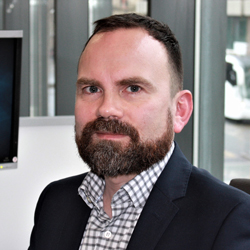
Páll Jónsson
Programme Director – Data and RWE, National Institute for Health and Care Excellence
When new treatments are brought to the market, they go through multiple assessments to ensure that they are safe, effective and good value for money. However, questions still remain.
The questions that need answering during this journey are many and diverse. It is therefore no surprise that no one study design is ideal for answering all of them.
Questions around randomised control trials
Randomised controlled trials are well established as the key study design used by the medicine regulators. However, health technology assessment agencies such as NICE are increasingly looking to other sources of evidence to answer some of the questions that can’t be as readily answered by randomised controlled trials.
There are multiple drivers behind this development, in particular, better data infrastructure that enables safe and secure collection and analysis of outcomes in patients in the health and care system.
We work at the interface of health and care and the life sciences to facilitate early access to innovation and real world data therefore is increasingly important in our work. In fact, it is the preferred source for informing many aspects of health technology assessment, such as for characterising health conditions, care pathways and patient outcomes, all of which are important in NICE’s assessment of new treatments. This is because data collected when a treatment is used in a real clinical setting has the potential to better reflect what we expect to see in day-to-day practice.
Real world evidence framework
However, without the robust approach that is built into randomised trials, real world data is prone to biases, confounding and can be of poor quality. To help address this, we recently developed a real world evidence framework, which will be formally launched in June 2022. This is intended to signal “what good looks like” and enable the use of broader types of data, which will support rapid and robust technology evaluations and more dynamic living guidelines.
Data collected when a treatment is used in a real clinical setting has the potential to better reflect what we expect to see in day-to-day practice.
The NICE real world evidence framework identifies when real-world data can be used to reduce uncertainties and improve guidance. It also clearly describes best-practices for planning, conducting and reporting real-world evidence studies to improve the quality and transparency of evidence.
Delivering trust in real world evidence
We realise that a concerted effort is required to deliver trust in real world evidence so that it is fit for healthcare decision making. We welcome constructive challenge and a broad range of views and we will continue to work with regulators, healthcare professionals, patients, innovators and other stakeholders to further develop our approach to this to ensure we have a robust way of using the most appropriate evidence in our decision making.

